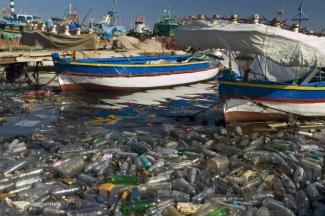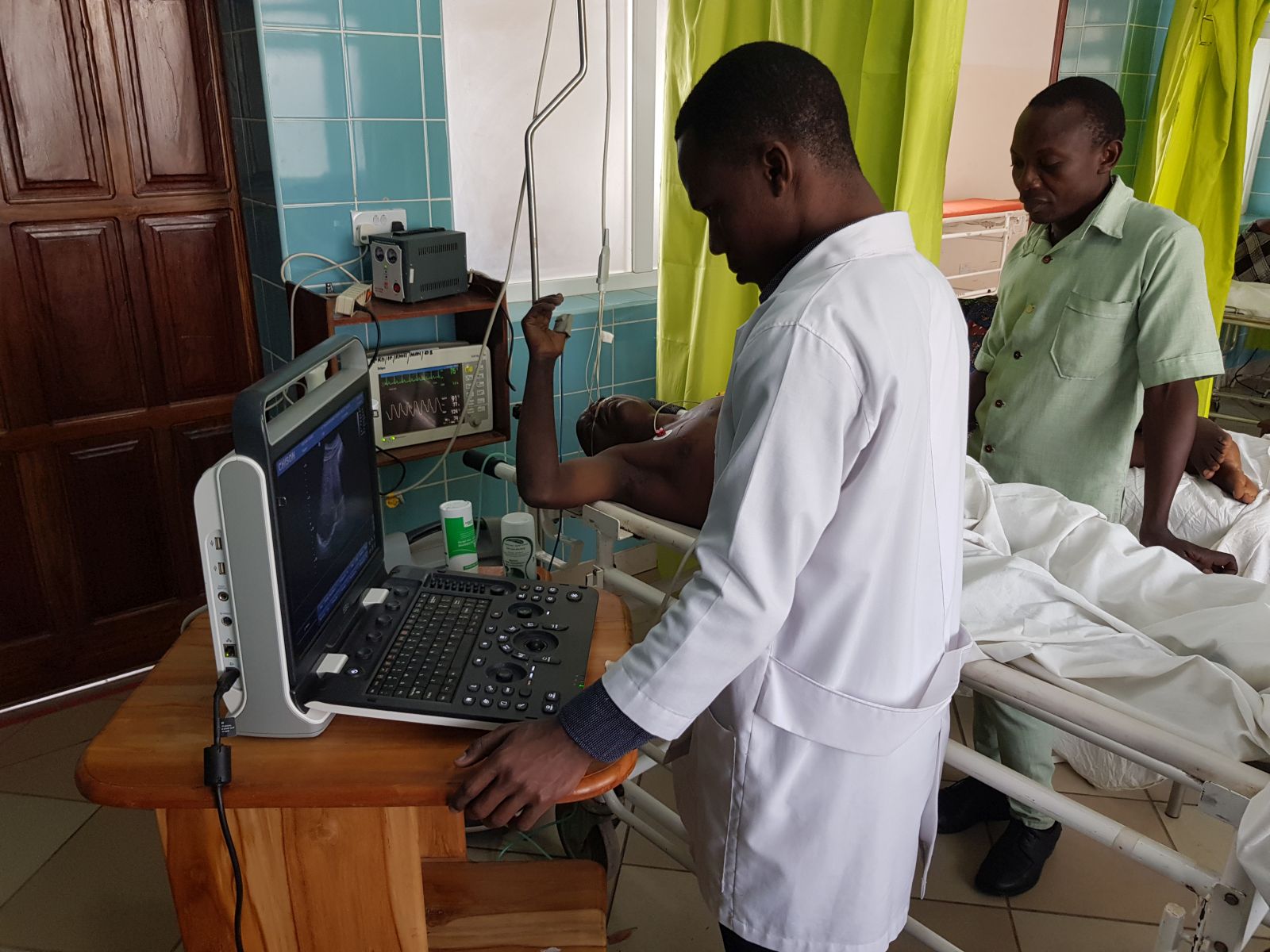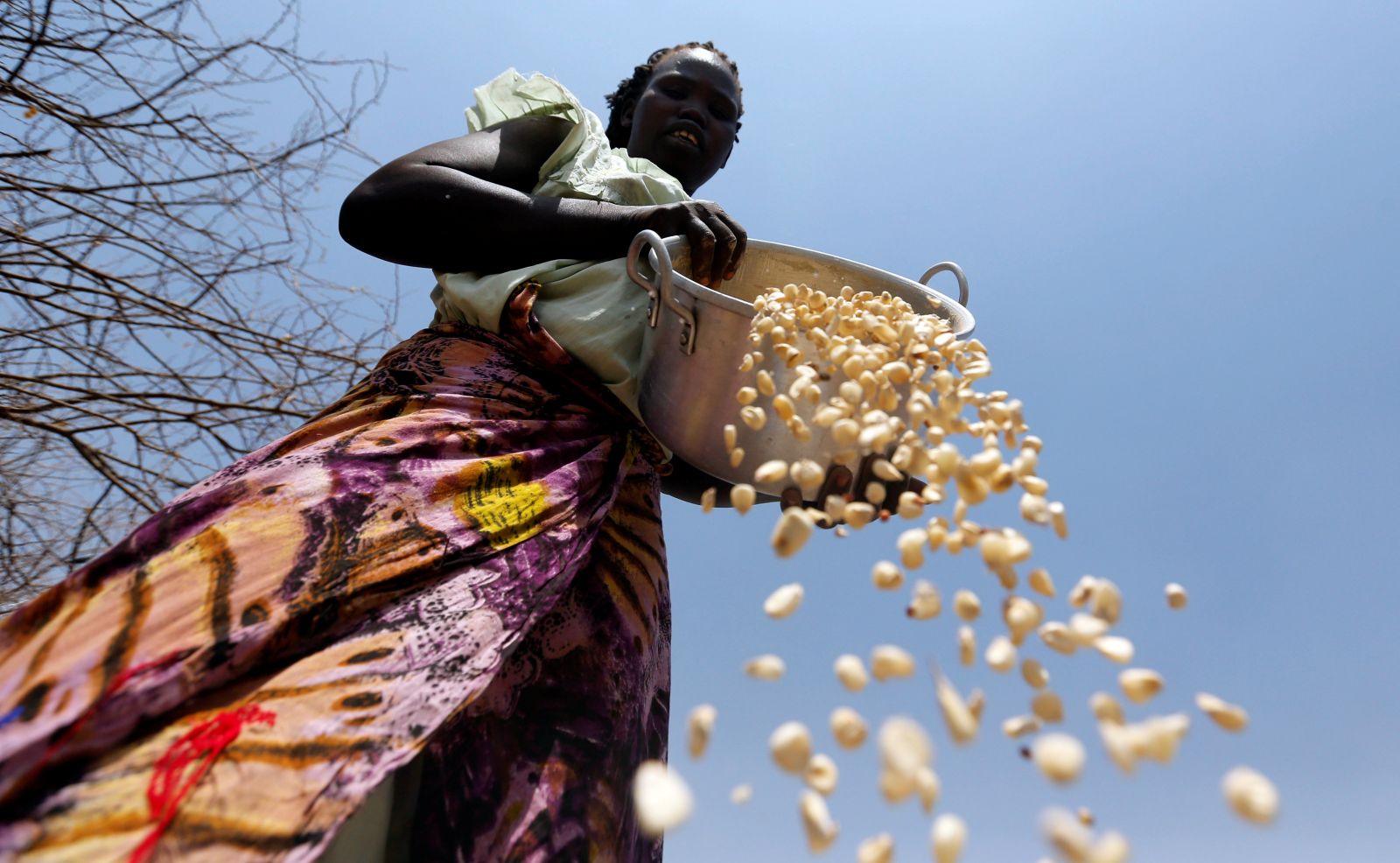Protecting the oceans
A call to action

The climate and the oceans are intricately linked, according to experts. Seventy-one percent of the earth is covered by the seas, which act as a climate control system. Marine environments contribute about half the oxygen to our atmosphere. And with their rich diversity of plant and animal life, the oceans are an important source of food for humans. Worldwide 1.5 billion people depend on fish for the protein they need.
Our oceans are currently under threat from:
- rising water temperatures because of global warming,
- illegal fishing and overfishing, and
- water pollution from plastic, chemicals and other litter.
The international community has acknowledged the problems and is responding with political programmes. Sustainable Development Goal (SDG) 14 is to protect and conserve the oceans, seas and aquatic resources. In 2017, the leading industrialised and emerging nations (G20) passed an “Action plan on marine litter”. Germany’s Federal Ministry for Economic Cooperation and Development (BMZ) adopted its “Ten-point plan of action for marine conservation and sustainable fisheries”. All these programmes support developing countries in protecting the oceans and using them sustainably.
Money and expertise are needed to achieve the goals. In November, the KfW hosted the Development Finance Forum 2017 in Frankfurt to mobilise both. The international conference focused on marine protection zones, sustainable fishing and reducing plastic litter in the oceans.
In recent years, a number of films and photos have impressively documented the danger pollution poses to the oceans. During the filming of prize-winning documentary “A plastic ocean”, Jo Ruxton, the film’s co-producer and co-founder of the Plastic Oceans Foundation, was shocked to learn what impacts plastic litter has on the animal world. Many birds mistake plastic for food and die a horrible death from starvation. According to Ruxton, around 320 tonnes of plastic are produced every year, an amount experts say will double in the next 20 years.
Globally, 72 % of all plastic packaging is not recycled. Forty percent ends up in landfills and 32 % ends up somewhere in the natural environment, including the oceans, completely unprocessed. This had led to an estimated accumulation of 150 million tons of plastic endangering animals and plants in the marine environment. By 2050, plastic in the oceans will outweigh the fish. And the problem is not going away anytime soon, since plastic decomposes very slowly – if at all.
David C. Wilson from Imperial College London says that most of the plastic pollution that ends up in marine environments originates from developing countries. Together China, Indonesia, the Philippines, Thailand and Vietnam account for roughly half of the pollution. Wilson has identified poor waste collection and disposal as the root of the problem.
The waste sector is where experts like Costas Velis from the International Solid Waste Association (ISWA) see real options for preventing future pollution. Overall, KfW conference participants agreed on the need to improve waste disposal on land. Waste management is usually handled by municipal authorities, so they will need know-how and money from national governments to build the necessary infrastructure.
Experts highlight the need to increase plastic recycling rates quickly and significantly. For this purpose, plastic rubbish must be collected and sorted efficiently. Starting in schools and youth centres, outreach and education can help raise public awareness of the issue. Convincing consumers of the advantages of reducing, collecting and separating waste is important. The right course will only be set if politicians, business people and other decision-makers are on board. Finally, industry must be held accountable for reducing the amount of plastic produced and ensuring its proper disposal.
Plastic and other pollution is not the only threat facing the earth’s oceans. Commercial uses such as fishing, shipping, deep-sea mining and tourism also contribute to the depletion of natural marine resources. Setting up marine and coastal protection zones in which commercial use is either limited or completely forbidden is one option. Such zones preserve animal and plant biodiversity, allowing it to recover. Greenpeace reports that just one percent of the world’s oceans are currently protected. That is far too little, KfW conference attendees agreed. The current international goal to protect ten percent of all marine and coastal areas by 2020 is considered the “absolute minimum”. Thirty percent would be a better target. Experts recommend improving international coordination and protection-zone management. They also want long-term funding to be provided.
Existing local and regional protection zones should be expanded and linked through a conservation network. Ideally, governments, the private sector and non-governmental organisations would uphold marine conservation guidelines and cooperate on creating this network with backing from financial institutions and donors. The Blue Action Fund (see box) is a new instrument in this context. Protection zones can only succeed if local people are involved in managing them. The Food and Agriculture Organisation (FAO) has issued guidelines for responsible fishery on a small scale.
Manuel Barange from the FAO reports that fishing is both part of the problem and part of the solution. Fish is an important food and a lucrative commodity in many developing countries, Barange added, so responsible fishing is a key piece to solving the puzzle. Participants at the Development Finance Forum agreed that boosting investment in sustainable fishing and aquaculture would help protect the oceans. Improving protection-zone management, involving local fishermen in sustainability efforts, and offering them financial support was also seen as essential.
Link
“A Plastic Ocean” documentary:
https://www.plasticoceans.org/












